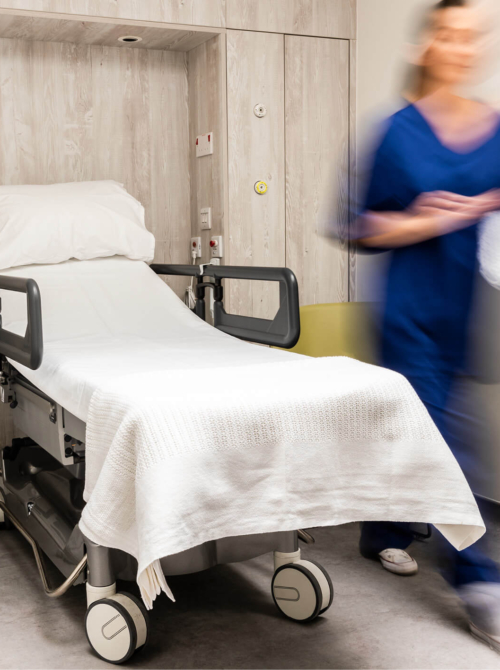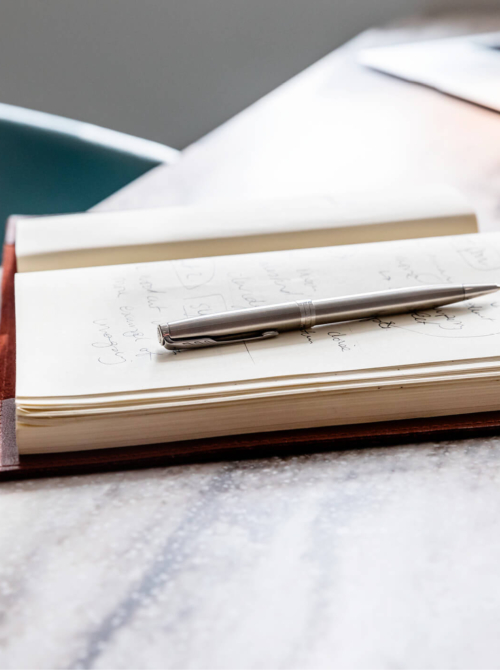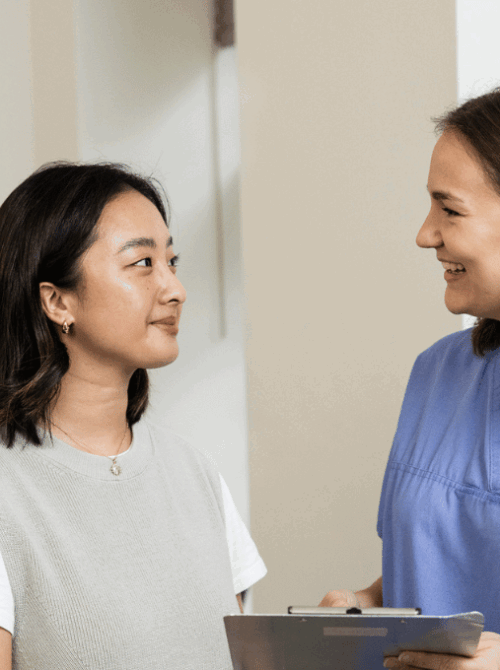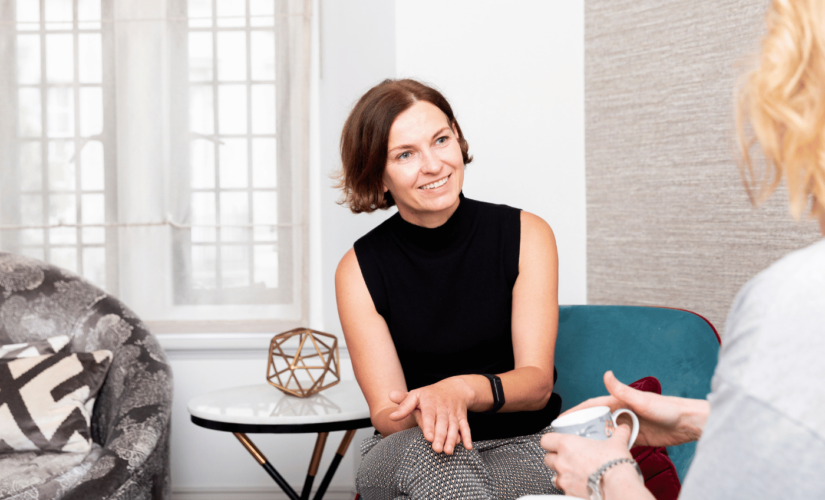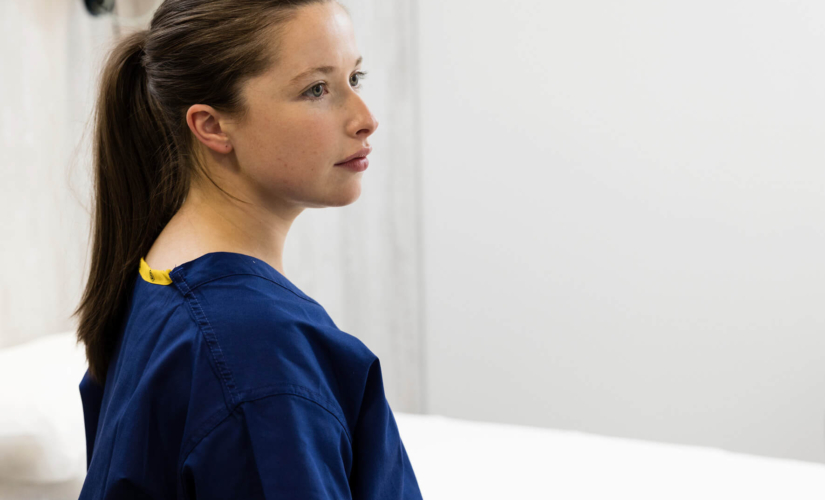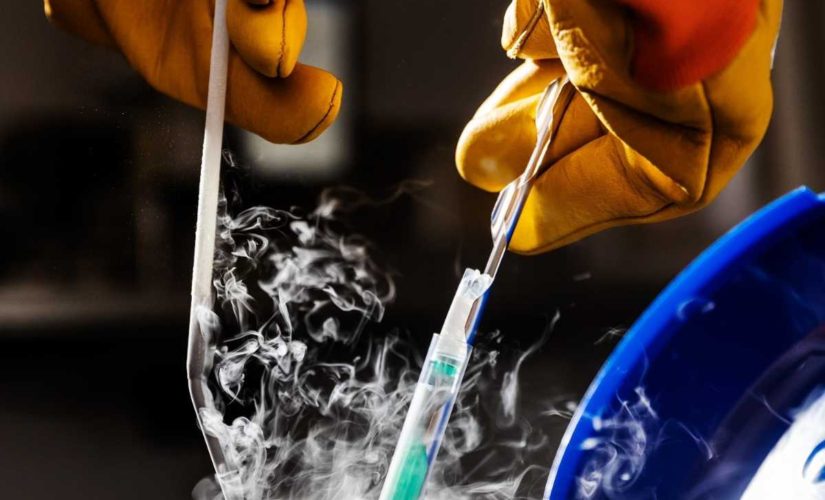Coping with an ectopic pregnancy
For our second patient story as part of Baby Loss Awareness Week, we have Evie, who is sharing her story of feelings, fears and the future after ectopic pregnancy.
If you are feeling low today, take heart; this is a wonderful story of hope.
Evie’s Story
I couldn’t believe it was happening again. Miscarriage. Utter devastation.
The surgeon delivered the news with clinical candour: I was experiencing a ruptured ectopic pregnancy, and therefore the baby was ‘not viable’. I knew the answer, yet still I pleaded that they somehow move the baby; perhaps nudge her along an inch or two so she’d be safe and I could cling on to her, but – of course – no. Nothing to be done other than emergency surgery, in the hope of my survival.
I was so close to having the 12-week scan under my belt; it was all booked in. Had this tiny fertilised egg implanted in my womb, I’d have been blissfully edging towards motherhood. Instead, it lodged in my fallopian tube which proceeded to burst and cause massive internal bleeding. Both egg and tube needed to be removed (a salpingectomy) via abdominal incision (laparotomy). I weaved in and out of consciousness while doctors frantically darted around. I was minutes from death.
Warning signs
I’d felt groggy for a few days, but hoped it was morning sickness. I was even a little excited that my body was clearly up to something; my hormones yo-yoing in order to grow a healthy baby. But the abdominal cramps and nausea became unmanageable, and suddenly a fiercely intense pain struck across my shoulders. I felt utter dread as I recognised the symptoms.
Not wishing to cause alarm, I foolishly ushered my partner out of the door for a quick jog so I could call 111 for advice. He returned within half an hour to find that I’d fainted and knocked myself out on the stone floor. My lips were blue due to clinical shock and my distended belly had swelled to the extent that I looked full term.
See ‘Ectopic pregnancy facts’ below.
The operation was complicated by adhesions from a previous surgery, so what should have been a relatively swift procedure took over five hours. When I eventually regained consciousness, I hadn’t the energy to speak, swallow or move.
I remember blood transfusions, catheters, infections and endless medication. Meanwhile, monitors beeped with disconcerting irregularity as my body struggled to stabilise. After days in Intensive Care, I had to be ‘turned’ to avoid developing bed sores. I battled nightly flashbacks and descended into panic when blood loss and inactivity caused my limbs to go numb.
After a week or so, a visiting therapist helped me brush my teeth, and gently washed my hair as I lay in bed weeping. Poker-faced medical students asked permission to inspect me during rounds. A nurse clocked off from a neighbouring ward to show me the keyhole surgery scar from her own baby loss; she held my hand as we soundlessly cried. It was a moment of catastrophic sadness paired with astonishing generosity and kindness.
Acceptance
Months later, I remained a mess. I was in poor physical shape, entrenched in grief and unable to move forward. I’d felt afraid to bond with the latest hope in my tummy, but nonetheless that love had grown as we appeared to sail through week eight, then nine, then ten. I’d resisted for so long, but the howling sense of absence from the moment I woke from sedation to find myself alone – that she was gone – was overwhelming.
I didn’t know the gender of my baby, but somehow sensed she was a girl. When I yielded to this and gave her a name, things changed. My sorrow attached to something tangible, and I allowed myself to truly mourn and fall apart. It was unthinkable to remember her abandoned in the fear and darkness of the hospital, so I wrote her a letter and tucked it away in a place that I love. I still like to think of her there.
Finding support
It was only when I reached out to a fertility counsellor that I was diagnosed with PTSD. It dawned that part of the unique tragedy of ectopic pregnancy is that the trauma seems unending. I had to come to terms with both miscarriage and facing mortal danger, while confronting the terrifying prospect of trying to conceive again. Having already persevered for years, my chances of getting pregnant naturally were now even lower. Perversely, the only numbers in my favour were the increased chances of suffering another ectopic. Thoughts of a stolen future unravelled before me.
Recovery
I felt powerless, so my counsellor guided me towards an action plan that built resilience and presented discernible choices. I worked with a physio and personal trainer to regain fitness, which made me feel stronger and more capable, and in turn boosted my mood. It also helped channel my anger, as I raged over friends’ never-ending ‘Big News’ and the injustice of my fertility being in worse shape than before this calamity.
I sought comfort and community in forums for those in the grip of the same raw emotions. Acupuncture and meditation helped steady my whirring mind. Days finally became manageable again.
Taking control
After a year of dedication to this regime, I gingerly broached the parenthood chat with my partner. He’d surrendered his longing for a child if I couldn’t go through it all again, and we agreed we mustn’t lose ourselves to the journey indefinitely. I wasn’t ready to give up just yet though, and he understood.
While my age and overall health looked good on paper, something was clearly (and repeatedly) going wrong. We felt safer exploring our options in terms of assisted conception. Not only could it offer a more realistic glimpse of our chances, but I needed the reassurance of close monitoring if we were successful.
Fertility specialists
The clinic ran numerous tests and procedures to create a vast dossier of data. While several results were less-than-optimum, I finally felt as though I had some agency over my fertility. Medication was prescribed and tweaked, and we discovered that ICSI could be advantageous in sidestepping scarring at the site of my missing fallopian tube.
There were fresh and frozen cycles, and high-quality blastocysts that led to nothing. It was exhausting at times. I returned to my counsellor to manage the rollercoaster of hope then despair, followed by somehow summoning the emotional grit to go again.
There was no elation when two blue lines finally appeared on the pregnancy test. The anxiety was immense. I was glued to a mindfulness app throughout the two-week wait (and the fortnight after that) as we awaited an early scan to determine whether the embryo had implanted safely. It had, and she is now a wonderful four-year old. Her name is Alice, and I could not be more grateful.
For more information and support, visit the Ectopic Pregnancy Trust.
Ectopic pregnancy facts
An estimated 1 in 80 pregnancies in the UK are ectopic.
When a fertilised egg implants outside the uterus (most commonly in the fallopian tubes), it is unable to develop into a healthy baby.
Early-stage ectopic pregnancies can go undetected and may require no medical treatment, but symptoms can rapidly escalate between the fourth and twelfth week, and can be fatal if left untreated.
Treatments include expectant management, chemical intervention with the drug methotrexate or surgery.
Around 85% of women get healthily pregnant within two years of an ectopic pregnancy.
